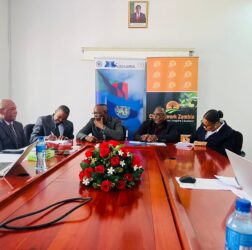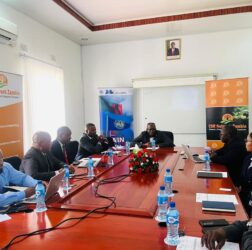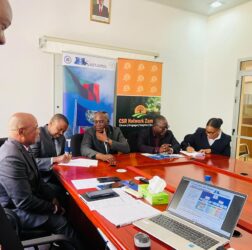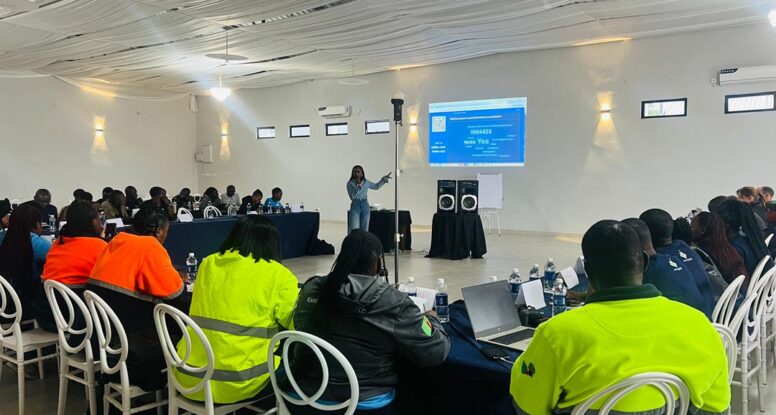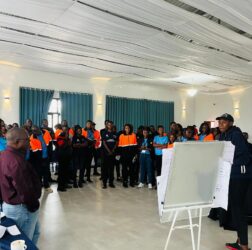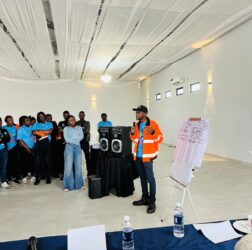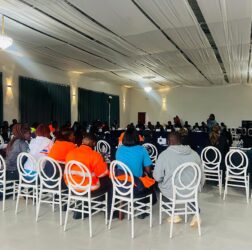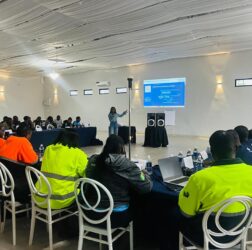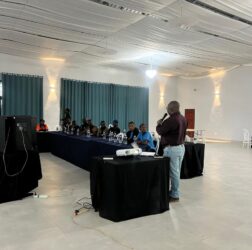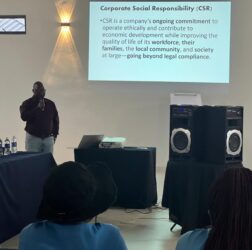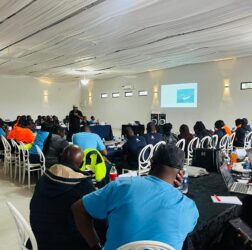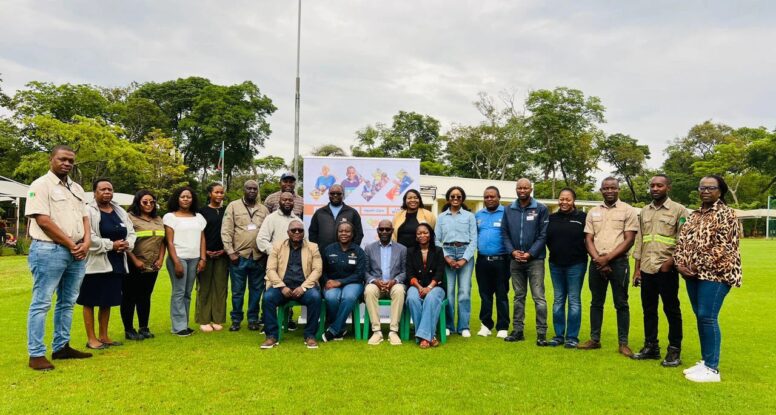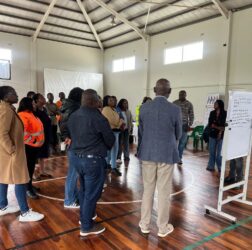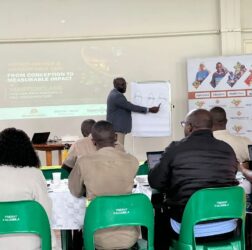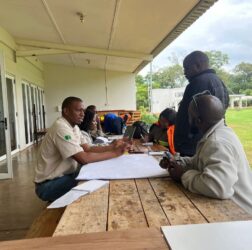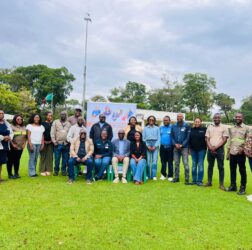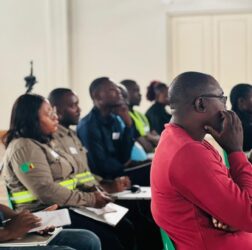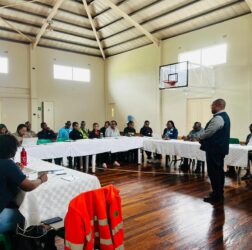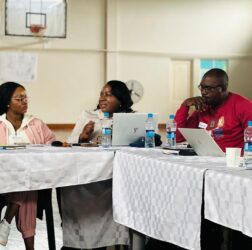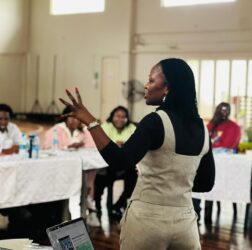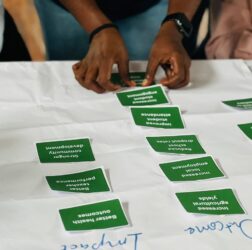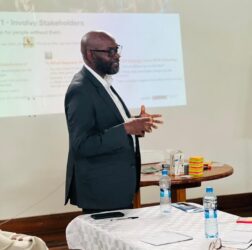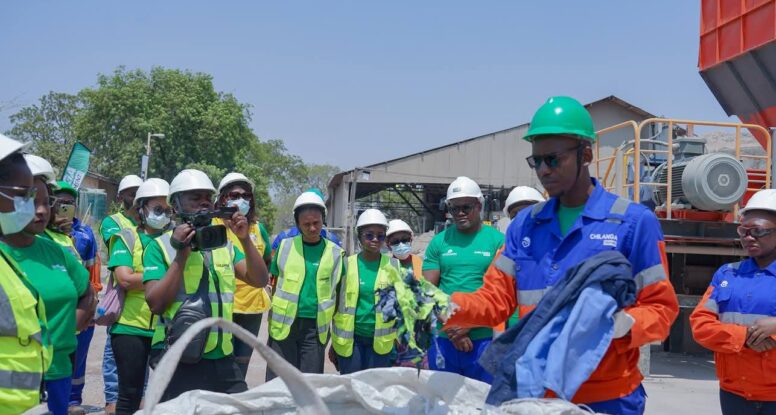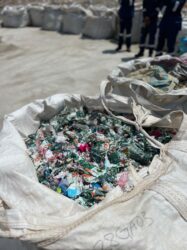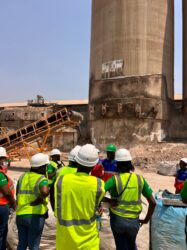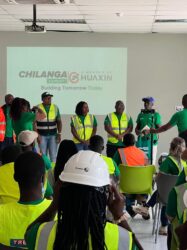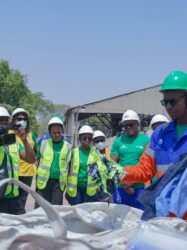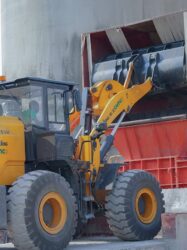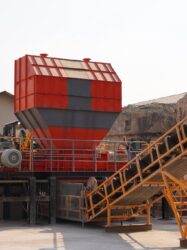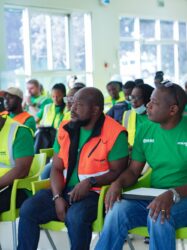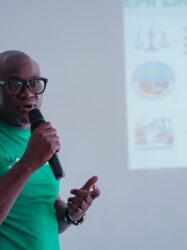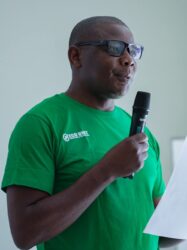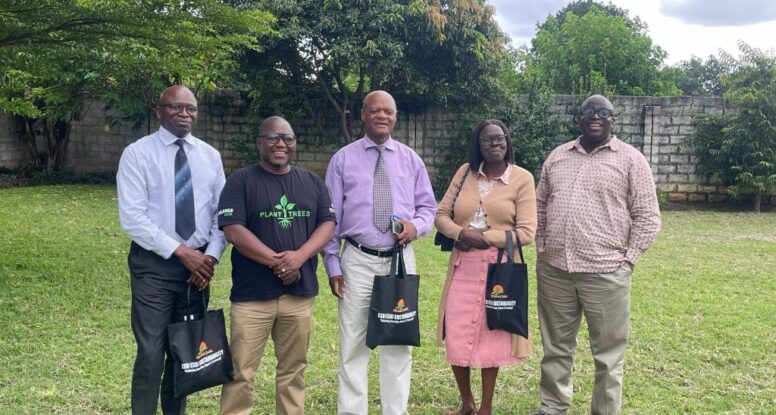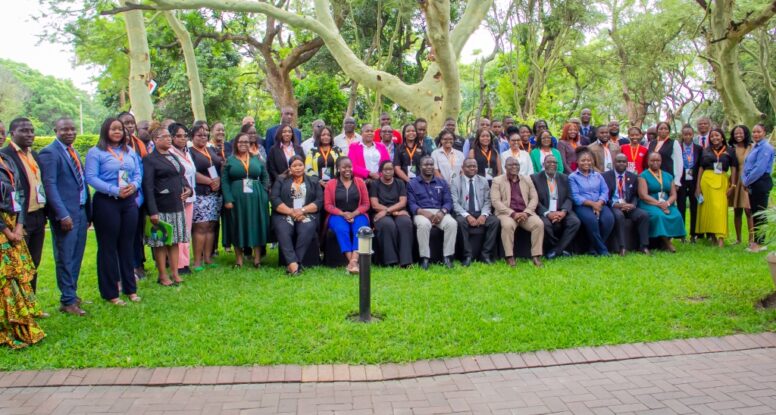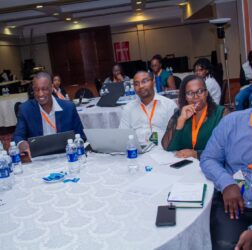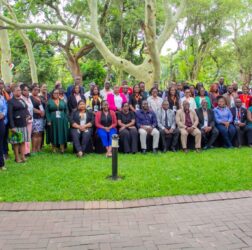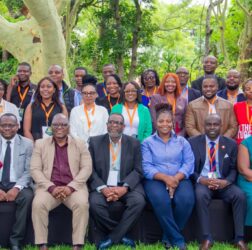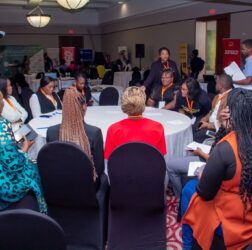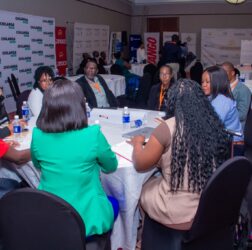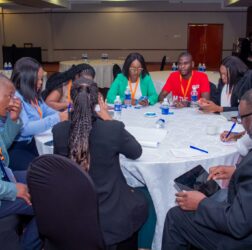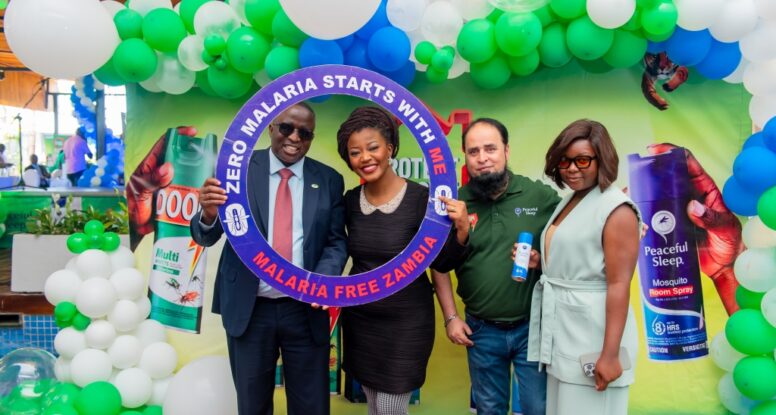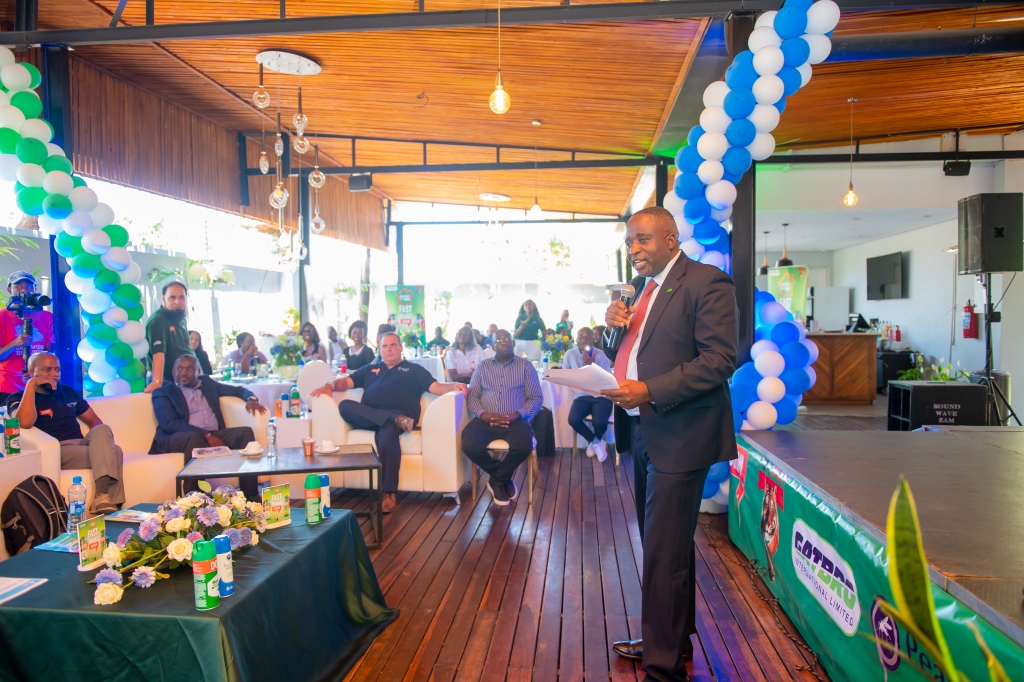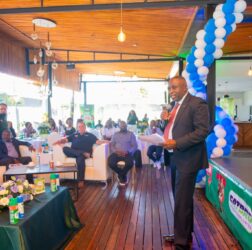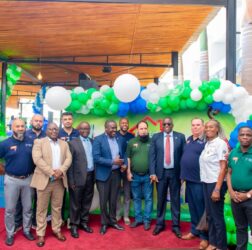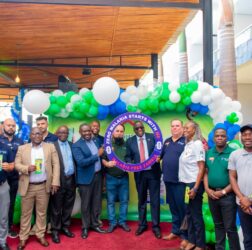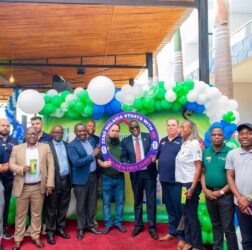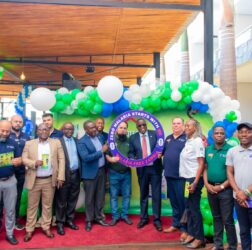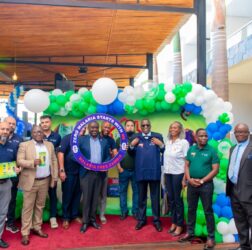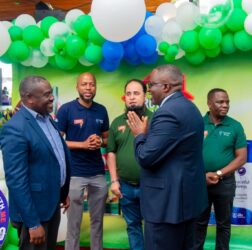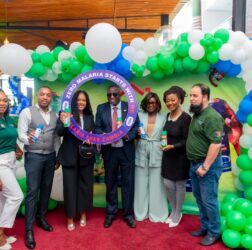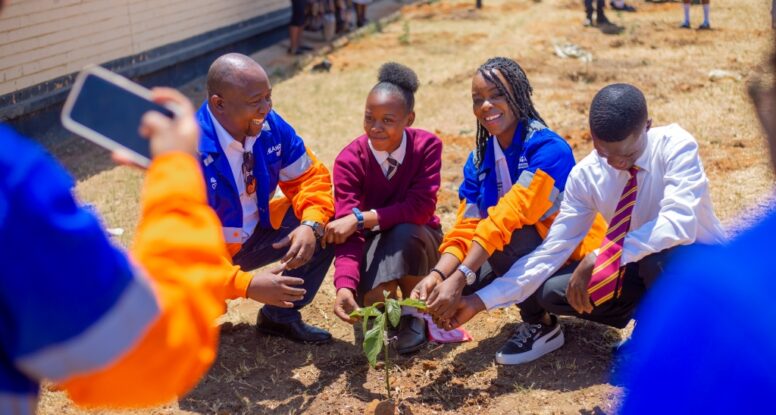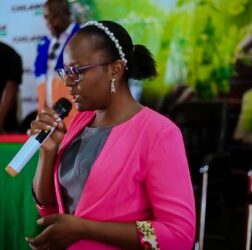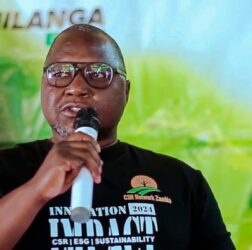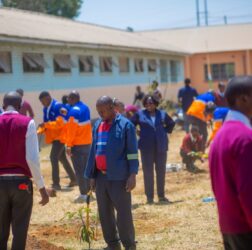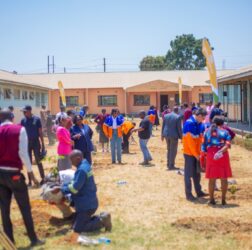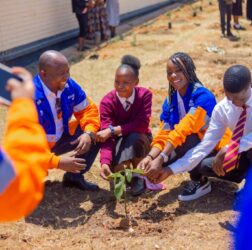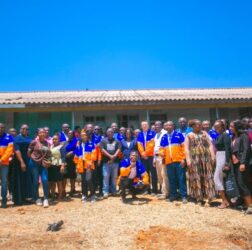Lusaka, Zambia – On February 19-20, 2025, CSR Network Zambia successfully hosted the highly anticipated CSR and Sustainability Conference at the prestigious Taj Pamodzi Hotel. Under the theme “Driving Sustainable Impact through Innovation,” the event brought together over 100 participants from diverse sectors, including corporates, government, academia, and non-profits, to explore innovative approaches to corporate social responsibility (CSR) and sustainability in Zambia and beyond.
We would like to extend our heartfelt gratitude to all the sponsors – Trident Foundation, Barrick Lumwana, KCM, Yango, Gatbro, Stanbic, Zambia Sugar, ZANACO, Ecobank, Kansanshi Mining, Chilanga Cement, JTI Leaf Zambia, Vision Spring, Seed Co, Grizzly Mining and Umoyo. We also appreciate all the conference delegates and those who visited the project site at the Zambia National STEM Foundation, and attendees of the 6th CSR and Sustainability Awards. Your support, commitment, insightful conversations, impactful submissions, and shared experiences were instrumental in making our 3-day event a resounding success!
The conference featured a dynamic lineup of speakers, interactive sessions, and thought-provoking discussions aimed at fostering sustainable transformation and inclusive growth. The event also included an additional activity on February 21, 2025, further extending its impact.
The first day of the conference, themed “Setting the Stage for Sustainable Transformation,” focused on laying the foundation for future initiatives. The day began with registration and networking, allowing participants to connect and exchange ideas before the formal proceedings.
The conference was officially opened by Mr. Beausic Chongo, representing the Permanent Secretary of the Ministry of Green Economy and Environment, Dr. Douty Chibamba. In his opening remarks, Mr. Chongo emphasized the importance of collaborative efforts in driving sustainable development and commended CSR Network Zambia for organizing such a timely and impactful event.
This was followed by an inspiring keynote address by Professor Danny Mulala Simatele from Witswatersrand University, South Africa. His session, titled “Reimagining CSR for Africa’s Future: The Power of Innovation,” challenged attendees to rethink traditional CSR models and embrace innovative solutions tailored to Africa’s unique challenges.
The day continued with an interactive roundtable moderated by Lee Muzala, which delved into the role of innovation in achieving long-term sustainability. Breakout sessions, led by Lee Muzala, Chilufya Musosha, and Mukuka Bwalya, explored critical topics such as green innovations for climate action, digital transformation for social impact, and the private sector’s role in poverty alleviation and job creation.
The final session of day one was a special session led by Andreas Lindstrom and Lee Muzala, representing ZAMNEX and CSR Network Zambia, respectively. They discussed the development of a National CSR Framework, a pivotal step toward aligning Zambia’s CSR efforts with global standards while addressing local needs. The day concluded with a wrap-up and reflections, setting the tone for the following sessions.
The second day, themed “Innovating for Inclusive Growth and Sustainability,” built on the momentum of the first day. It began with a recap of Day 1 by a volunteer, followed by a presentation by Lee Muzala on “CSR in a Zambian Context.” Muzala emphasized the need to balance CSR standards with community-centered traditions to ensure relevance and impact.
Just before the panel discussion, the Permanent Secretary of the Ministry of Green Economy and Environment, Dr. Douty Chibamba, joined the conference, paying a courtesy call on the gathering. In his remarks shared right after the Panel Discussion, Dr. Chibamba raised critical concerns about plastic pollution and called on corporates to join hands in combating environmental challenges and uplifting communities. He also took time to address questions from participants, providing valuable insights into the government’s vision for sustainable development and the role of the private sector in achieving it.
The panel discussion, moderated by Chilufya Musosha, featured insights from Chimfwembe Mulenga, Clayton Kachamba, Samukhele Mwase, and Isaac Muyuya. The panel explored how businesses can invest in social enterprises to create lasting social and economic benefits, highlighting successful case studies and best practices.
Mukuka Bwalya led an engaging case study workshop, where participants worked collaboratively to solve real-world CSR challenges faced by Zambian companies. This hands-on session provided practical insights and actionable strategies for attendees to implement in their organizations.
The conference concluded with an open discussion on the future of CSR and sustainability in Zambia, followed by closing remarks from Lee Muzala. Participants left inspired and equipped with innovative ideas to drive sustainable impact in their respective fields.
The CSR and Sustainability Conference 2025 was a resounding success, showcasing the power of collaboration and innovation in addressing Zambia’s pressing challenges. By bringing together diverse stakeholders, we continue to demonstrate our commitment to promoting sustainable development and inclusive growth in Zambia.
The participation of key government officials, including Dr. Douty Chibamba, underscored the importance of public-private partnerships in tackling issues such as plastic pollution and community development. As the conference concluded, it was clear that the discussions and connections forged over the two days would serve as a catalyst for meaningful change, paving the way for a more sustainable and equitable future. CSR Network Zambia continues to lead the charge in redefining CSR and sustainability, proving that innovation is key to driving lasting impact.





